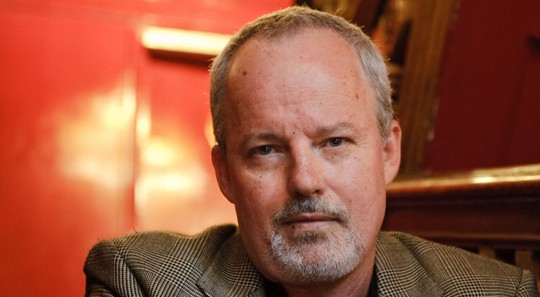 Australian-born author Michael Robotham began his career as a journalist and then turned to ghostwriting, penning many best-selling autobiographies for the likes of Geri Halliwell, Lulu and Ricky Tomlinson. His novels have proved an international success and been translated into more than 20 languages. He has twice won Australia’s Ned Kelly award for best crime novel and was shortlisted for the CWA Steel Dagger in 2007 and 2008. Say You’re Sorry – the fourth book to feature psychologist Joe O’Loughlin and former cop Vincent Ruiz – is a full-blooded thriller that will keep the reader on the edge of their seat.
Australian-born author Michael Robotham began his career as a journalist and then turned to ghostwriting, penning many best-selling autobiographies for the likes of Geri Halliwell, Lulu and Ricky Tomlinson. His novels have proved an international success and been translated into more than 20 languages. He has twice won Australia’s Ned Kelly award for best crime novel and was shortlisted for the CWA Steel Dagger in 2007 and 2008. Say You’re Sorry – the fourth book to feature psychologist Joe O’Loughlin and former cop Vincent Ruiz – is a full-blooded thriller that will keep the reader on the edge of their seat.
Tell us a little about Say You’re Sorry…
Say You’re Sorry is a dark psychological thriller about two missing teenage girls, best friends Piper Hadley and Tash McBain, who disappear on the last Saturday of their summer holidays. Piper Hadley narrates half the story, still alive and being held captive after three years. Meanwhile, after a grisly double homicide at an isolated farmhouse, psychologist Joe O’Loughlin becomes convinced that the girls might still be alive. Piper is counting on him and she’s running for her life.
What inspired you to write this book?
I never use the word ‘inspired’, but most of my novels are seeded in real life events. Many people will remember the tremendous outpouring of public grief 10 years ago when Holly Wells and Jessica Chapman, both aged 10, disappeared from the small village of Soham after a family barbecue. There is a famous photograph of them in matching Manchester United shirts, taken beneath a clock at Holly’s house. They were dead almost within an hour, but for the weeks before their bodies were discovered, the nation hung on every scrap of information. There were memorials, prayer vigils and a huge search organised.
Ultimately, a school caretaker, Ian Huntley was arrested and convicted of their murders.
In Say You’re Sorry I was interested in exploring public and private grief – how some stories capture the collective imagination and create a phenomenon that psychologists have labelled ‘mourning sickness’.
This is the fourth Joe O’Loughlin novel – do you have more plans for him and Ruiz?
I’m never entirely sure what characters will turn up in each novel because I don’t have their lives plotted out in advance or a drawer full of ideas that I can dip into when I’m stuck.
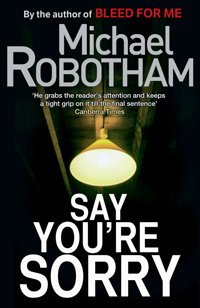 Joe suffers from Parkinson’s Disease and this is so realistically portrayed that it almost becomes an extra character in the book. Is this something that will develop in future books?
Joe suffers from Parkinson’s Disease and this is so realistically portrayed that it almost becomes an extra character in the book. Is this something that will develop in future books?
When I created Joe O’Loughlin in The Suspect I had no intention of ever carrying him on as a character. I was going to write stand-alones. I brought Joe back in Shatter because it was the perfect story for a psychologist to tell – a battle between a man who breaks minds and one who has spent his career trying to repair them. And he came back in Bleed for Me because my wife insisted that I couldn’t leave Joe alone until I’d sorted out his personal life.
He’s back again, I never plan ahead, but I’m sure Joe and Vincent will be back in future stories but Joe’s Parkinson’s makes his long-term future questionable.
Your teenage characters are very convincing – does having daughters of your own help?
Creating Piper Hadley was one of the great challenges and joys I’ve experienced as a writer. Having teenage daughters made it easier to capture Piper’s voice. She’s a strong character and some of her dialogue was lifted straight from real-life – conversations with my girls, who are opinionated, funny and feisty.
Most of my books have involved women or girls in jeopardy. I draw upon my own worst nightmares – dreams that involve my children being in danger: running, drowning, falling, calling to me, but I can’t reach them. These are common dreams for a father. I don’t enjoy such dreams, but I do like to explore relationships between fathers and daughters, particularly Joe O’Loughlin and his daughter. Joe is trying so hard to be a good father, but can’t tell if he’s doing the right things.
What prompted your leap from ghost writing to crime writer? And which do you prefer?
I always wanted to be a novelist – even from my early teens growing up in Australia when I felt as though I had nothing to write about because Mark Twain had stolen all the best plots.
Journalism helped me gather material and ghostwriting taught me the discipline of writing in the long form and how to ‘capture the voice’ of a character, making them live and breath for the reader.
I did 15 ghostwritten ‘autobiographies’ for the great and the good. Writing novels is more difficult because I have to battle with the tyranny of the blank page. As a ghostwriter, I had the subject and sources in front of me. As a crime writer I have to invent everything from scratch.
Do you feel your background in journalism influences your writing?
Most of the books I’ve written are seeded from real life events that I have either covered as a journalist or have read about in newspapers. Journalists are jacks-of-all trades, knowing a little about a lot of subjects, which is very helpful for a writer.
In the course of my career, I interviewed presidents, prime ministers, serial killers and senior police officers. I travelled the world and gathered material, which filters into the novels in unexpected ways.
What’s coming up next for you?
The next book features a new character, Marnie Logan, whose husband has been missing for more than a year. It’s a stalking story based on a case I once covered as a journalist. The pitch is simple: imagine someone has been stalking you for your entire life.
Watch for our review of Say You’re Sorry soon…








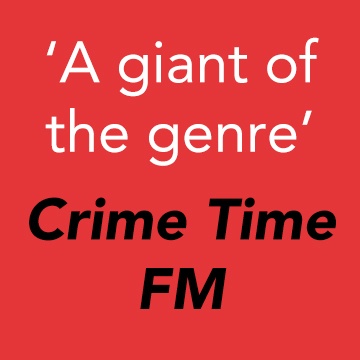
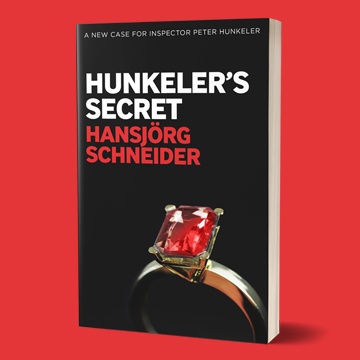
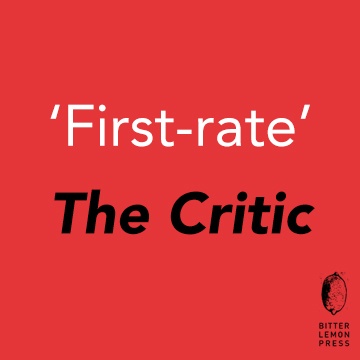
Just finished, Say Your Sorry…..Have read all of Michael Robotham’s books…Excellent writer…Can’t wait for # 9..Thank you…
This series is so compelling because the psychiatrist is working through his own physical and mental challenges as a result of Parkinsons. How did Michael Robotham understand the nuances of this disease? The character pushes through his challenges in a very real way and in the process, whether the author wanted this outocome or not, inspires others to do the same. I hope we see Joe in all future books.